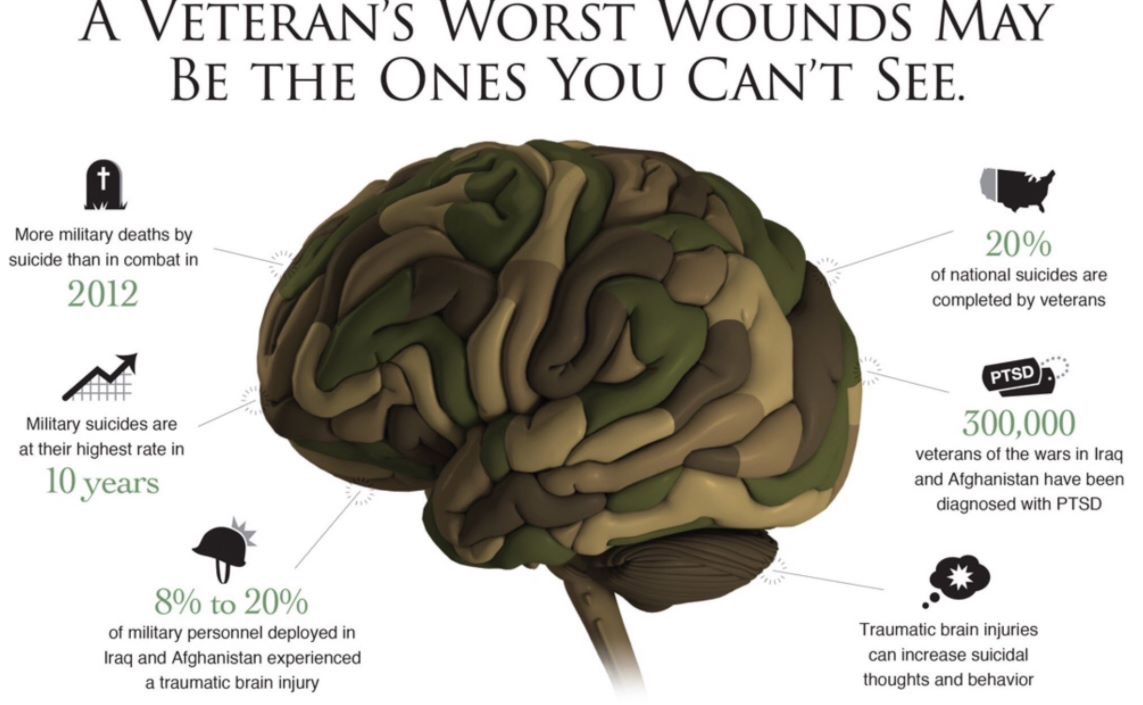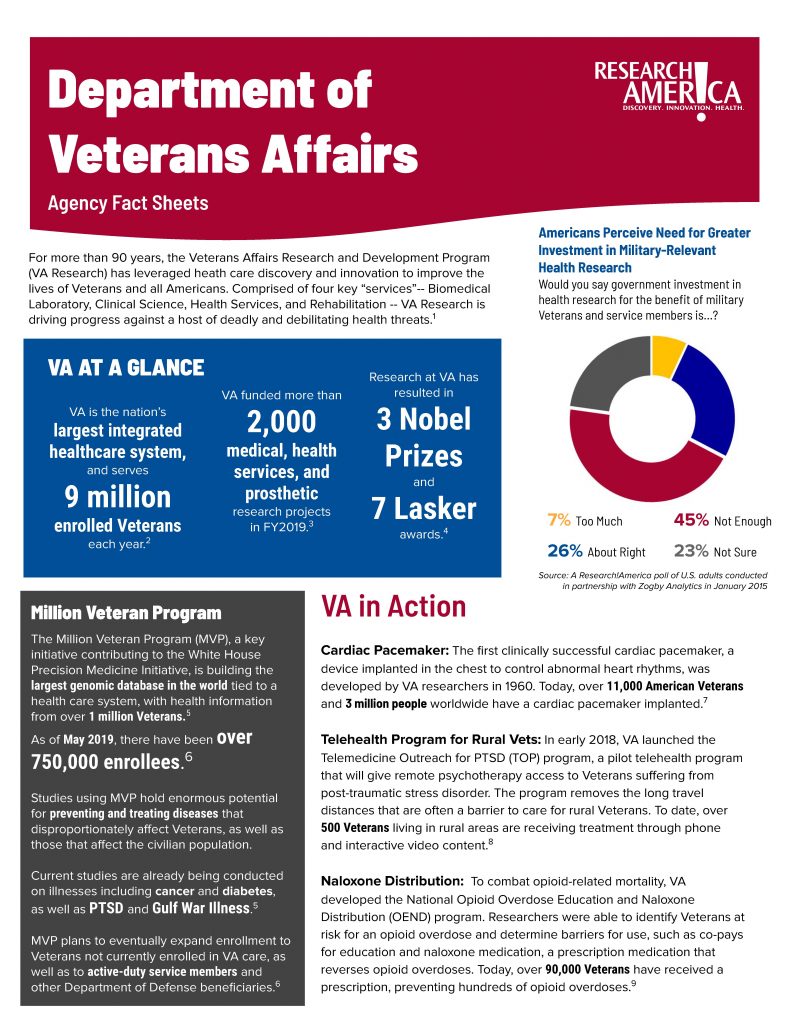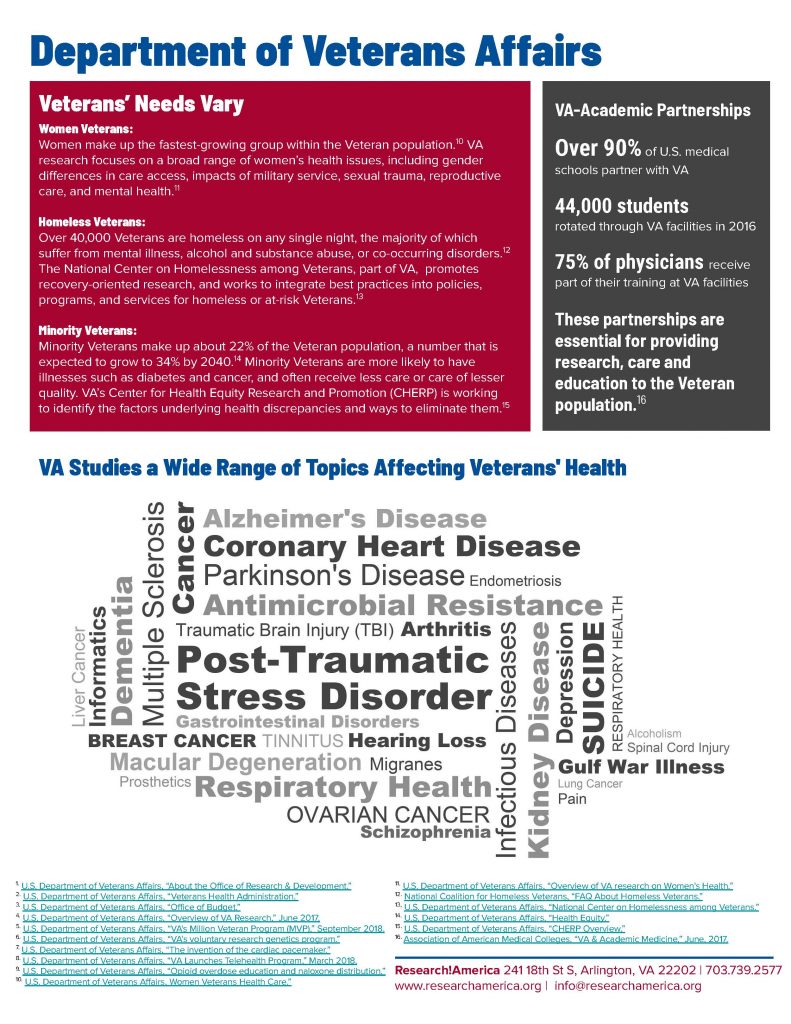Our Soldiers
Did you know that returning veterans may be at a higher risk of suicide? Call or text 988 if you are experiencing an emotional crisis and need to talk to a caring provider who can help. These are some warning signs:
- Thinking about killing or hurting yourself
- Looking for ways to kill yourself
- Talking about death, dying or suicide
- Self-destructive behavior such as drug abuse, weapons, etc.
- Hopelessness, feeling like there’s no way out
- Anxiety, agitation, sleeplessness, mood swings
- Feeling like there is no reason to live
- Engaging in risky activities without thinking
- Increasing alcohol or drug abuse
- Withdrawing from family and friends
Call or text immediately if you experience any of these signs
988
Effective January 17, 2023, veterans in acute suicidal crisis will be able to go to any VA or non-VA health care facility for emergency health care at no cost – including inpatient or crisis residential care for up to 30 days and outpatient care for up to 90 days. Veterans do not need to be enrolled in the VA system to use this benefit.
This expansion of care will help prevent Veteran suicide by guaranteeing no cost, world-class care to Veterans in times of crisis. It will also increase access to acute suicide care for up to 9 million Veterans who are not currently enrolled in VA.
“Veterans in suicidal crisis can now receive the free, world-class emergency health care they deserve – no matter where they need it, when they need it, or whether they’re enrolled in VA care,” said VA Secretary for Veterans Affairs Denis McDonough. “This expansion of care will save Veterans’ lives, and there’s nothing more important than that.”
The final policy will allow VA to:
- Provide, pay for, or reimburse for treatment of eligible individuals’ emergency suicide care, transportation costs, and follow-up care at a VA or non-VA facility for up to 30 days of inpatient care and 90 days of outpatient care.
- Make appropriate referrals for care following the period of emergency suicide care.
- Determine eligibility for other VA services and benefits.
- Refer eligible individuals for appropriate VA programs and benefits following the period of emergency suicide care.
Eligible individuals, regardless of VA enrollment status, are:
- Veterans who were discharged or released from active duty after more than 24 months of active service under conditions other than dishonorable.
- Former members of the armed forces, including reserve service members, who served more than 100 days under a combat exclusion or in support of a contingency operation either directly or by operating an unmanned aerial vehicle from another location who were discharged under conditions other than dishonorable.
- Former members of the armed forces who were the victim of a physical assault of a sexual nature, a battery of a sexual nature, or sexual harassment while serving in the armed forces.
WARRIOR CARE NETWORK
Warrior Care Network strives to enhance access
and provide treatment to warriors and their families
living with PTSD and TBI.
Marcus Institute for Brain Health
The MIBH provides specialty care for military Veterans, First Responders, and retired athletes struggling with mild-to-moderate traumatic brain injuries (including concussion) and changes in psychological health. Patients at the MIBH are treated as a person first. We welcome Veterans of any discharge status.
US Dept. Veteran Affairs
Apply for VA health care. They also have a crisis helpline to chat.
SHARE Military Initiative
Based in Atlanta, Georgia since 2007, SHARE has provided evidence-based rehabilitation for military veterans, service members, and first responders who are ready to accept help and healing for their daily struggle with traumatic brain injuries and mental health concerns.
US Dept. Veterans Affairs
If you have a service related disability, benefits are available.
Homecoming for Veterans
The EEG Institute, a world leader in neurofeedback research and training, and Homecoming for Veterans is offering this cutting-edge treatment, at no cost, for veterans suffering from Post-Traumatic Stress Disorder (PTSD) through a network of clinicians across the country.
https://battle-buddy.info/
Watch this short video on how blast waves can cause damage in the brain:
New clues how blast exposure may lead to Alzheimer’s disease
https://www.medscape.com/viewarticle/new-clues-how-blast-exposure-may-lead-alzheimers-disease-2024a1000bne
This website has many resources for veterans to find help and learn about CTE
https://concussionfoundation.org/programs/project-enlist/operation-brain-health
Functional Decline 5 Years After Blast Traumatic Brain InjurySounding the Alarm for a Wave of Disability?
http://jamanetwork.com/journals/jamaneurology/article-abstract/2618930

PTSD May Be Physical as Well as Psychological, Scientists Say
http://www.sciencealert.com/ptsd-may-be-physical-as-well-as-psychological-scientists-say

Our military fighting for our country overseas come home to face a different kind of battle. We’ve heard the letters “CTE” in sports, but our troops are facing it, as well.
Early Clinical Predictors of 5-Year Outcome After Concussive Blast Traumatic Brain Injury
Psychedelic Drug May be Approved for PTSD Therapy:
Benefits of Owning a PTSD Service Dog:
A specially trained PTSD service dog can provide an extra sense of security and have a calming effect on veterans, help with episodes of depression, anxiety, and Post Traumatic Stress Disorder as well as being loving companions.The VA provides service dog benefits and refers people to accredited agencies. Many of these organizations do not charge for the dog or the dog’s training.
America’s VetDogs – the Veteran’s K-9 Corps, Inc.: The service dog programs of America’s VetDogs® were created to provide enhanced mobility and renewed independence to veterans, active-duty service members and first responders with disabilities.
Brigadoon Service Dogs: Brigadoon Service Dogs provides trained service dogs for veterans, children, adults with physical, developmental, and behavioral health disabilities to promote a more independent and enriched life.
Patriot Paws: This organization trains and provides service dogs at no cost to disabled American veterans and others with mobile disabilities and Post-Traumatic Stress Disorder (PTSD) to help them restore their physical and emotional independence.
K9s for Warriors: K9s for Warriors provides service canines to veterans who suffer from PTSD, traumatic brain injury and/or military sexual trauma as a result of military service post 9/11. K9s for Warriors works to return veterans to civilian life with dignity and independence.
Paws for Purple Hearts: Paws for Purple Hearts improves the lives of America’s Warriors facing mobility challenges and trauma-related conditions such as PTSD and TBI by providing the highest quality assistance dogs and canine-assisted therapeutic programs; and by building public awareness about the important role dogs play in helping Warriors along the road to recovery.
NEADS: Service dogs for veterans programs match highly skilled service dogs with United States veterans from any conflict who have a permanent physical disability, are deaf or who have profound hearing loss, or have MS or other progressive conditions. (These disabilities do not need to be combat-related.)
Companions for Heroes: They champion public awareness of Post-Traumatic Stress Disorder (PTSD) and challenges confronting our country’s heroes and rally support for shelter animal adoption by connecting heroes and companions.
Battle Buddy Foundation: They champion public awareness of Post-Traumatic Stress Disorder (PTSD) and challenges confronting our country’s heroes and rally support for shelter animal adoption by connecting heroes and companions.
Research on military brains mirrors those of ex-athletes.
Early brain amyloid accumulation was found in otherwise healthy young men exposed to repetitive subconcussive blast injuries, a pilot study showed. The controls not exposed had clear scans.
A Report Protecting Warfighters from Blast Injury, April 2018
https://www.cnas.org/publications/reports/protecting-warfighters-from-blast-injury
Marines Who Fired Rocket Launchers Now Worry About Their Brains
https://www.npr.org/sections/health-shots/2018/07/25/632243103/marines-who-fired-rocket-launchers-now-worry-about-their-brains
BEHIND THE MASK
Revealing the Trauma of War
https://www.nationalgeographic.com/healing-soldiers/index.html




